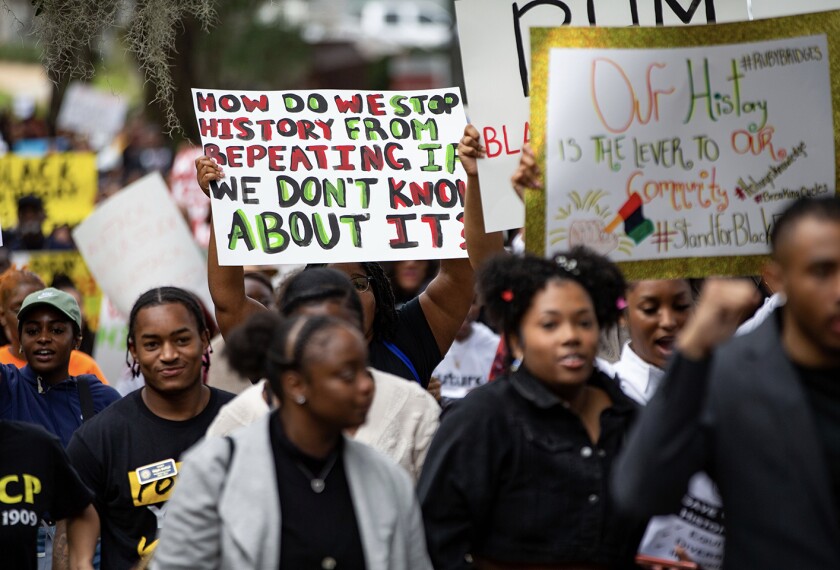In a new national EdWeek Research Center survey, 65 percent of the 401 participating teachers said their state does not require students to learn Black history.
While educators and researchers point to a number of challenges that need to be addressed to ensure K-12 schools cover Black history in their curriculum, one that stands out is a lack of state mandates and rules around requiring this instruction.
In fact, in describing the goals of its new Advanced Placement course on African American Studies, the nonprofit group College Board said that access to such a discipline has not been widely available to high school students, and is in part why the group is pursuing providing the course nationally.
In a review last summer of state legislation mandating Black history instruction, the Center for K-12 Black History and Racial Literacy Education housed within the Graduate School of Education at the University at Buffalo found only about a dozen states with such laws in place.
Those states are identified in the following map:
LaGarrett J. King, the founding director of the center said that many of these Black history mandates are often more of a symbolic gesture. State oversight committees related to the instruction of Black history mandates should push for more work in teacher training on this topic to ensure Black history is taught, he said.
He added that some of the states with mandates in place also have laws in effect that restrict instruction on topics of race.
The Education Commission of the States, an inter-state education agency, “actively tracks all introduced education policy legislation in state legislatures throughout the country, and provides summaries of all enacted and vetoed legislation, which can be found at their interactive policy tracking tool,” according to the agency.
The table below covers legislation enacted since 2019 explicitly related to Black/African American history education, according to the agency’s policy scan.
A state’s absence from this list does not necessarily mean that students do not receive Black history education or that no state policy addresses the topic, but is instead a reflection of legislation enacted in the past four years, the agency said.
Legislation related to other categories such as ethnic studies are not included in the table. And requirements related to this topic of instruction may also exist at the school or district level, rather than or in addition to the state level, the agency added.






